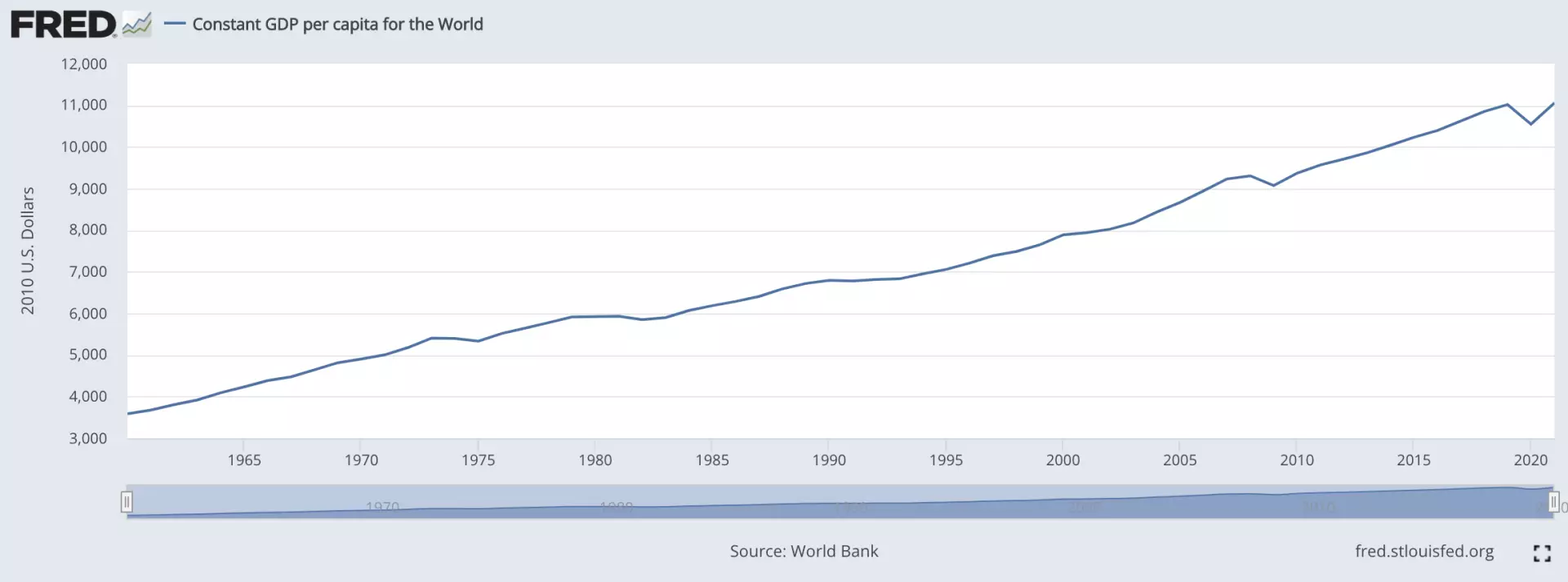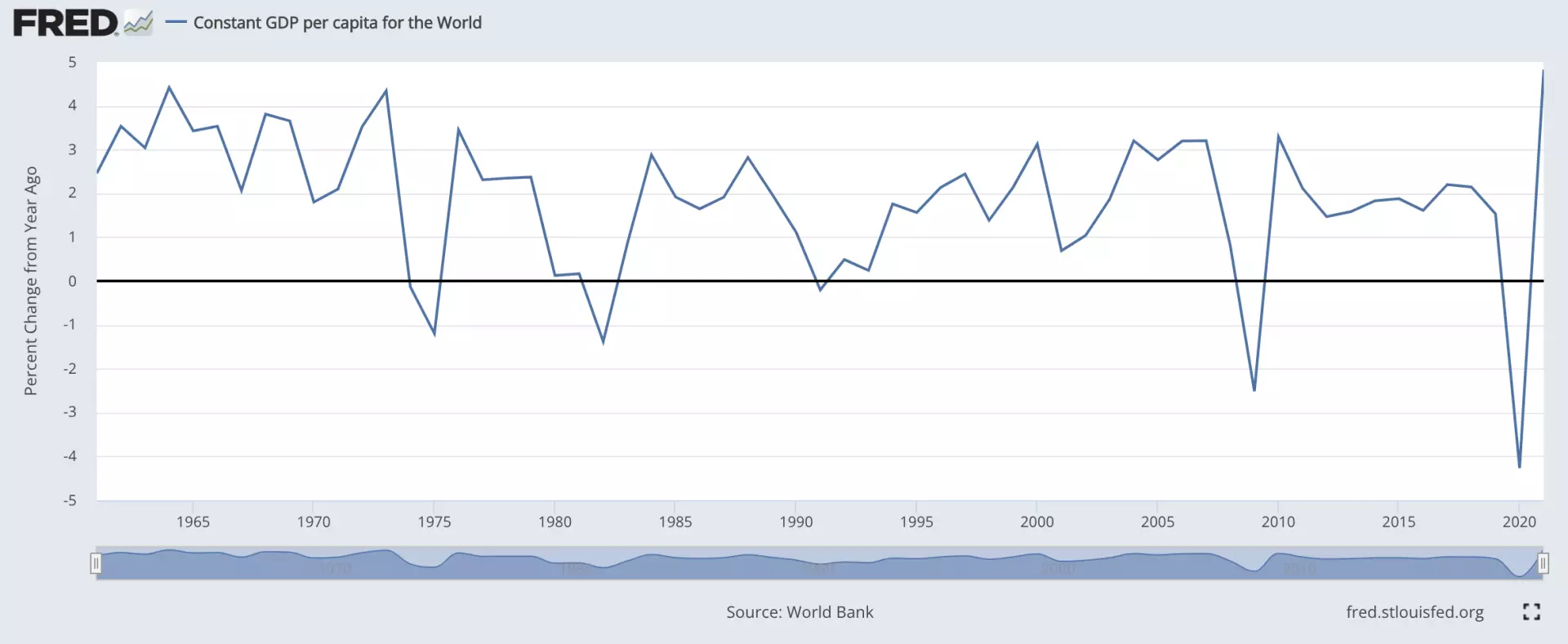Comments
- No comments found

It seems like every week or two, there is a new book or article about how the world economy is a disaster.
Sometimes the thesis of the book is about too much reliance on markets; other times, too little reliance on markets. As a backdrop for all such claims, here’s a figure showing GDP per capita since 1960 (in constant 2010 US dollars), created with the ever-useful FRED website run by the Federal Reserve Bank of St. Louis.

The annual growth rate works out to about 1.9% annual growth over the full 55 years. This figure shows the year-to-year percentage changes. In the 1960s, the growth rate of world GDP was consistently above the long-run average, but since then, there have been years where it was lower and even negative.

Of course, I’m aware that these kinds of figures don’t settle any arguments. Some skeptics will argue that the gains would have been much larger if only their preferred policies had been followed. Some of those criticisms are surely correct. Other skeptics will argue that per capita GDP is a limited measure of welfare that doesn't cover lots of topics of interest. They are surely correct. Still other skeptics will point out that there are severe measurement problems with GDP in the first place, and especially with comparisons of GDP across countries, and even more so with comparisons across countries and across time, so that these kinds of numbers involve a substantial margin of error. They are also correct. Some skeptics will go so far as to argue that per capita GDP is such a flawed statistic that it should be considered irrelevant to thinking about human well-being. They are incorrect.
I don’t take economic growth for granted. Confronted as I often am with claims that the world economy is sinking like the Titanic, I find the overall upward trend in per capita GDP during the last half-century to be moderately good news.
Timothy Taylor is an American economist. He is managing editor of the Journal of Economic Perspectives, a quarterly academic journal produced at Macalester College and published by the American Economic Association. Taylor received his Bachelor of Arts degree from Haverford College and a master's degree in economics from Stanford University. At Stanford, he was winner of the award for excellent teaching in a large class (more than 30 students) given by the Associated Students of Stanford University. At Minnesota, he was named a Distinguished Lecturer by the Department of Economics and voted Teacher of the Year by the master's degree students at the Hubert H. Humphrey Institute of Public Affairs. Taylor has been a guest speaker for groups of teachers of high school economics, visiting diplomats from eastern Europe, talk-radio shows, and community groups. From 1989 to 1997, Professor Taylor wrote an economics opinion column for the San Jose Mercury-News. He has published multiple lectures on economics through The Teaching Company. With Rudolph Penner and Isabel Sawhill, he is co-author of Updating America's Social Contract (2000), whose first chapter provided an early radical centrist perspective, "An Agenda for the Radical Middle". Taylor is also the author of The Instant Economist: Everything You Need to Know About How the Economy Works, published by the Penguin Group in 2012. The fourth edition of Taylor's Principles of Economics textbook was published by Textbook Media in 2017.
Leave your comments
Post comment as a guest